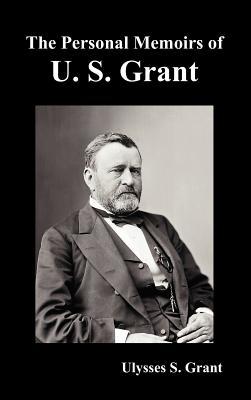The Personal Memoirs of Ulysses S. Grant "are well observed, often humorous, invariably charming, penetrating and lucid. On every page, his narrative has the simple directness of the finest English prose." Robert McCrum, The Guardian.
The Personal Memoirs, "perhaps the most widely acclaimed of all American memoirs" (The New York Times) have equal value as history and as literature and are so beautifully written that at first many believed that it was the work of Grant's friend, Mark Twain.
The Personal Memoirs cover President Grant's life including his seven years of poverty as a hardscrabble farmer just before joining the Union Army. They record his recollections of the Civil War and Reconstruction, expressing his sadness at the defeat of the South: "[I felt] sad and depressed ... at the downfall of a foe who had fought so long and valiantly, though the cause was, I believe, one of the worst for which people have fought." As a war hero, widely credited as the General who "saved the Union." he was easily elected President in 1868 in the first Presidential election after the civil war and was re-elected in 1872. During his tenure, he oversaw the forceful prosecution of the Ku Klux Klan, the promotion of African American rights and Native American rights and safety, and the appointment of minorities to high governmental positions.
In 1884 Grant was diagnosed with throat cancer, and, having been swindled out of his savings, he embarked on The Personal Memoirs to provide for his wife's financial future. Mark Twain, aware of Grant's financial straits, published the work under very generous terms. The book, completed in the month before Grant's death, was a huge financial success, with his widow receiving the largest royalty check to date.
Critic Edmund Wilson, ranking Grant with Walt Whitman and Henry Thoreau, believes writing that this powerful autobiography is "a unique expression of the national character. [Grant] has conveyed the suspense which was felt by himself and his army and by all who believed in the Union cause. The reader finds himself on edge to know how the civil war is coming out."
Robert McCrum concludes in The Guardian: "Throughout this very substantial autobiography, like the great man he was, Grant is supremely generous to his enemies, loyal to his friends and associates, and always devoted to another civil war hero, his president, Abraham Lincoln. The overall effect is both intimate and majestic."
Read it for a gripping eyewitness account of the Civil War and Reconstruction.
